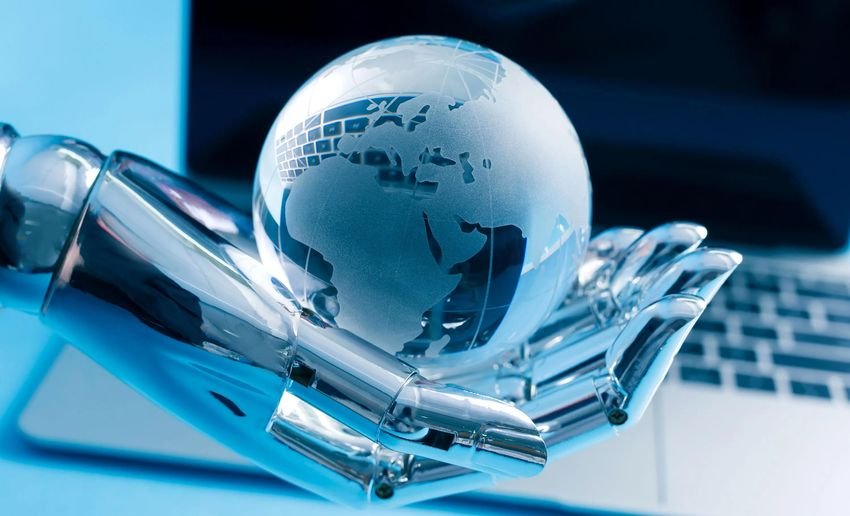The UK Department for Education carried out research into which professions are at risk from artificial intelligence. These include clergy, psychologists, civil engineers and teachers.

The report “The impact of AI on UK jobs and training” was published yesterday as an attempt to quantify the impact of technology on the professional sphere.
The research uses a developed method by Felten – Raj – Seamans, in the United States and applies it to a British occupational context.
"This method allows jobs to be ranked to highlight which positions are increasingly likely to be affected by developments in artificial intelligence, based on the skills required to perform the job," the report says.
However, the researchers stress that "estimates of which jobs are most exposed to AI are based on a number of uncertain assumptions, so the results should be interpreted with caution."
The report draws up two lists. One of the professions that will be affected by all its applications techniqueof intelligence and another one for professions that will only be affected by the large language models (LLM), such as ChatGPT, Bard etc.
It is indeed surprising to find that language models overshadow professions that require spirituality, such as psychologists (in No. 2) and clergy (in No. 13). See the list:
Professions that will be affected by the major language models
- 01 Salespeople over the phone
- 02 Lawyers
- 03 Psychologists
- 04 Continuing education teaching professionals
- 05 Merchants and assistants in shops and on the street
- 06 Legal professionals
- 07 Bank credit checkers
- 08 Human resource management professions
- 09 PR professionals
- 10 Management consultants and business analysts
- 11 Market researchers
- 12 Administrative occupations of Local Government
- 13 Clerics
- 14 Higher education teaching professionals
- 15 Collectibles dealers and bank agents
- 16 Education advisers and school inspectors
- 17 HR managers
- 18 National Government Administrative Occupations
- 19 Trainers in industry
- 20 Social Sciences and Humanities Scientists
In the 13th place we find the clergy. Place low relative if you remember that ChatGPT gathered 300 believers in a church in Germany, who attended a service preached by his LLM OpenAI.
In No. 2 place are lawyers, although AI has so far stood in the way of the profession. You remember them lawyers in the US who were disciplined for using ChatGPT for drafting legal documents. They asked the chatbot for examples of previous cases to use in a trial as precedent, got non-existent, fictional cases in response from the AI, and when it turned out to be a fiasco they were fined $5.000 and given a severe reprimand by the judge.
Some occupations are more understandable to be on the list. For example, Business Analysts and PR people could be replaced entirely by LLMs and no one would know the difference.
Although we will express some concern about people putting their mental health in the hands of an AI psychologist or someone who entrusts their legal woes to an LLM.
The report gives a list of occupations at risk from all applications of artificial intelligence. Check out this list:
Professions that will be affected by all AI applications
- 01 Management consultants and business analysts
- 02 Financial managers
- 03 Chartered accountants
- 04 Psychologists
- 05 Marketing managers
- 06 Actuaries, economists and statisticians
- 07 Business and financial project management professionals
- 08 Financial and investment analysts and consultants
- 09 Legal professionals
- 10 Businesses and related professionals
- 11 Bank credit checkers
- 12 Lawyers
- 13 Civil engineers
- 14 Education advisers and school inspectors
- 15 Human resource management professions
- 16 Business, research and administration professionals
- 17 Financial account managers
- 18 Accountants, payroll managers and salaried employees
- 19 National Government Administrative Occupations
- 20 Marketing partners
"Occupations most exposed to artificial intelligence include those related to clerical work and in finance, legal and business management roles," the report says.
"This includes management consultants and business analysts, accountants and psychologists."
On the contrary, it does not affect manual tasks. You could fearlessly turn to forklift operation, construction, plastering, tiling, dry cleaning, LGV driving, sewing and generally anything your thumbs are a must for.
At least until the combination of artificial intelligence and advanced robotics negates those opportunities as well. However, several manual tasks are believed to have low exposure to AI applications.





